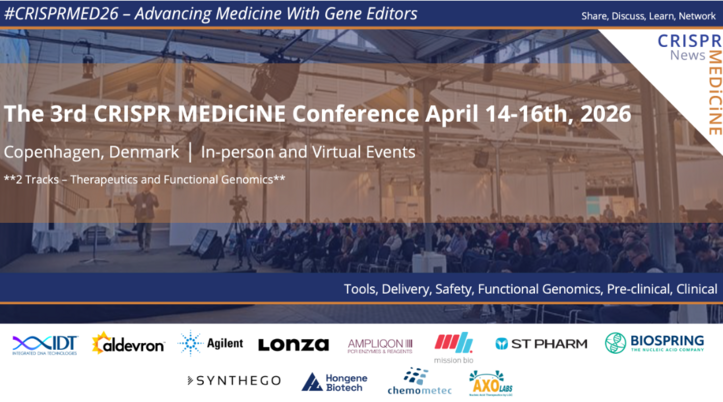Tune Therapeutics to Initiate Clinical Trial of First-In-Class Epigenetic Silencer in Chronic Hepatitis B
Seattle-headquartered Tune Therapeutics announced in a recent press release that New Zealand's Medicines and Medical Devices Safety Authority (MEDSAFE) has approved its clinical trial application for TUNE-401. This approval means that Tune can begin a Phase 1b clinical trial of its epigenetic silencer TUNE-401 in adults with chronic hepatitis B (HBV).
According to recent World Health Organization statistics, HBV resulted in an estimated 1.1 million deaths in 2022, and an estimated 254 million people are living with chronic HBV globally. The virus is transmitted through blood and bodily fluids and causes both acute and chronic infections of the liver, where the latter can result in death from cirrhosis or primary liver cancer.
Hepatitis B virus dual challenge: persistent cccDNA and genomic integration
As described in our earlier interview with Dr. Brian Cosgrove, bioengineer and principal scientist at Tune Therapeutics, the HBV genome is partly single- and partly double-stranded and once the virus has infected hepatocytes, the single-stranded part is 'repaired' by the host's cellular machinery leading to the generation of a circular, double-stranded mini-chromosome. These mini-chromosomes are known as covalently closed circular DNAs (cccDNAs) and constitute a reservoir of new viral particles. Owing to a level of resistance to antiviral medications and the host immune system, these viral factories can persist for many years in patients, causing chronic hepatitis B.
Although not a retrovirus, HBV can integrate into the genome of human hepatocytes over time. When an infected cell experiences a double-stranded break in its nuclear DNA, it will repair the lesion, often unintentionally using pieces of the cccDNAs for repair if there is slight homology on either end of the break. Regardless of chronic infection status, this integration of the virus into the human genome (intDNA) further complicates the treatment of hepatitis B.
In that interview with CRISPR Medicine News, Cosgrove explained how a true functional cure for HBV would require the permanent repression of both forms of the virus in hepatocytes: intDNA and cccDNA. TUNE-401 is designed to mimic a rare biological phenomenon observed in some chronic HBV patients: »Some patients can sporadically control the virus by putting on epigenetic marks to try to shut it down,« said Cosgrove. »But it takes many, many years on antivirals, and it's very random and stochastic. Our idea was that we could programme in these repressive epigenetic phenotypes, shut down the virus, and produce a true functional cure.«
TUNE-401: First-in-class epigenetic silencer shows sustained HBV silencing
TUNE-401 is the first epigenetic therapy to enter the clinic for the treatment of a common and infectious disease.
The candidate comprises a catalytically-dead Cas9 (dCas9) fused to two effector domains – a methyltransferase and another epigenetic repressor; these work together to exploit a weakness in the epigenetic regulation of HBV. Delivered via lipid nanoparticles, TUNE-401 contains an mRNA sequence encoding the epigenetic repressors and a guide RNA sequence targeting HBV. The target is a master controller sequence that is conserved between the intDNA and cccDNA of the virus across all known genotypes. By remodelling that specific viral locus and programming in a repressive state through DNA methylation and heterochromatin formation, TUNE-401 can inactivate all forms the virus.
At the AASLD conference held earlier this week, Tune Therapeutics presented pre-clinical data demonstrating that TUNE-401 leads to robust, durable, and precise suppression of HBV DNA in both in vitro and in vivo models. The data, summarised in a press release, show almost complete (99.99%) repression of 3.5 kb HBV RNA from cccDNA of infected primary human hepatocytes, with corresponding reduction of extracellular hepatitis B surface antigen levels – the primary biomarker for Hepatitis B infection – in primary human hepatocytes. Experiments to assess the durability of TUNE-401's effect revealed virus silencing beyond 550 days following transient delivery to a cell line harbouring HBV; this represents the persistence of repressive epigenetic marks through more than 275 rounds of cell division.
The first-in-human study will evaluate the safety, tolerability, pharmacokinetics, and pharmacodynamics of TUNE-401 in adult participants with chronic HBV. The initial clinical trial site will be in Auckland, New Zealand, and led by Principal Investigator Dr. Ed Gane.
We will continue to update you on the TUNE-401 trial as new details emerge. In the meantime, can find all of our coverage on clinical-stage gene editing programmes here.
For a complete overview of current gene editing clinical trials, check out CRISPR Medicine News' Clinical Trials Database.
To get more CRISPR Medicine News delivered to your inbox, sign up to the free weekly CMN Newsletter here.
Tags
ArticleNewsClinical News UpdatesHepatitis B virusEpigenome editing (e-GE)Tune Therapeutics
CLINICAL TRIALS
Sponsors:
Suzhou Maximum Bio-tech Co., Ltd.
Sponsors:
Zhejiang University







